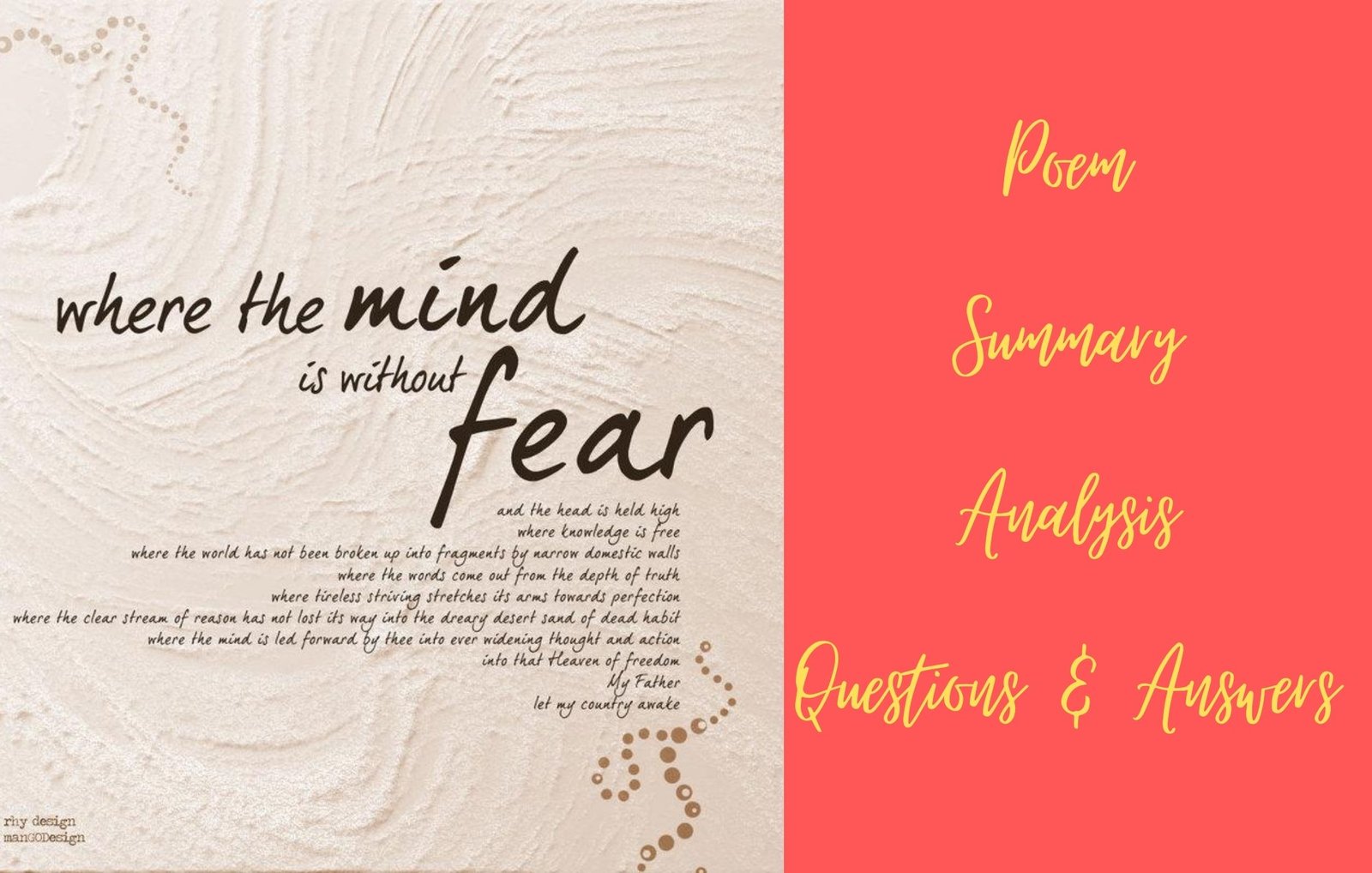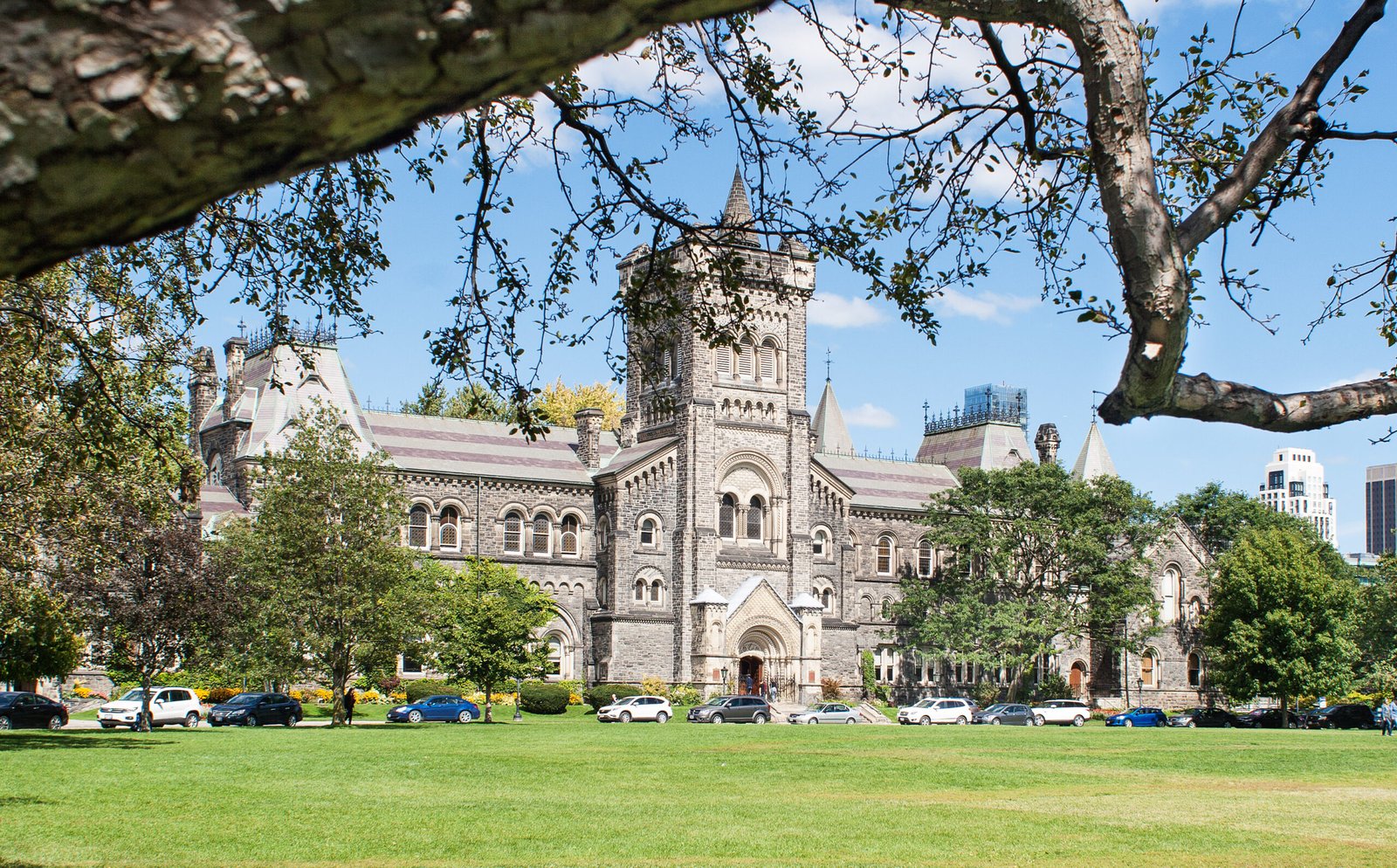
Where the Mind is Without Fear: Poem, Summary, Analysis
Last Updated on August 16, 2020 by
Table of Contents
Where the Mind is Without Fear
“Where the mind is Without Fear” is one of the most powerful and vastly read poem, composed by the Nobel Laureate Rabindranath Tagore in the 1900s. The poem was composed under the title “Prarthana” in the volume ‘Naibedya’. Where the Mind is Without Fear Summary
It was originally published in Bengali as “চিত্ত যেথা ভয়শূন্য” pronounced as “Chitto jetha bhoyshunyo” in the midst of protests and demonstrations against British rule. The Bengali version was translated into English by the author himself in 1911 and was the 35th Poem in his famous Noble winning collection the “Gitanjali” (Song Offerings) published in 1912.
The poem is written in the form of a prayer to God, the Almighty for true freedom for his country.
Where the Mind is Without Fear – Poem
Where the mind is without fear and the head is held high;
Where knowledge is free;
Where the world has not been broken up into fragments
By narrow domestic walls;
Where words come out from the depth of truth;
Where tireless striving stretches its arms towards perfection;
Where the clear stream of reason has not lost its way;
Into the dreary desert sand of dead habit;
Where the mind is led forward by thee;
Into ever-widening thought and action;
Into that heaven of freedom,
My Father, let my country awake
— Rabindranath Tagore
Where The Mind Is Without Fear – Summary Line by Line
Lines 1 – 4:
Where the mind is without fear and the head is held high
Where knowledge is free
Where the world has not been broken up into fragments
By narrow domestic walls
In these lines, the poet starts to imagine what he would like his country to be like. He says that no countryman of his should live with fear on his mind at all times. Instead, they should hold their heads up fearlessly and have confidence in themselves. Knowledge should be available to all citizens. That is, educational institutes should admit students of all races and classes. All the various regions of India and their peoples should be united instead of fighting amongst themselves for supremacy. They should fight together against a common enemy to determine their common fate.
Lines 5 – 8:
Where words come out from the depth of truth
Where tireless striving stretches its arms towards perfection
Where the clear stream of reason has not lost its way
Into the dreary desert sand of dead habit
In these lines, the poet says that in the India of his dreams, everyone should speak the truth. No person should lie for his own advantage. Every man should make an effort to improve himself and keep trying till he reaches a stage of self-perfection. Next, he imagines the reason to be an unsullied stream of water, through which one can progress easily and without encountering too many obstacles. On the other hand, he imagines habit to be a desert. The stream of reason seems to him to be lost in the sands of habit. This means that he is saying that the people of his country blindly believe in their superstitions at present, and he would like them to question these beliefs through the application of logic.
Lines 9 – 11:
Where the mind is led forward by thee
Into ever-widening thought and action
Into that heaven of freedom, my Father, let my country awake.
In these lines, the poet speaks directly to God. He wants his countrymen to be led by Him so that they broaden the horizon of both their thoughts and their actions. If they were to do so, then India would be transformed into heaven – heaven where all its citizens would be truly free.
This concludes the line by line summary of Where The Mind Is Without Fear by Rabindranath Tagore.
Where The Mind Is Without Fear – Questions And Answers
1. Pair up with your partner and match the terms theirs with given meanings.
| Column ‘A’ | Column ‘B’ |
| (1) Humanism | (a) Concern about and action aimed at protecting the environment. |
| (2) Patriotism | (b) Holding liberal views. |
| (3) Internationalism | (c) Quality of being patriotic : vigorous support for one’s country. |
| (4) Liberalism | (d) State or process of being international. |
| (5) Environmentalism | (e) A rationalistic outlook towards humans rather than a divine or supernatural one. |
Ans. : (1) – (e), (2) – (c), (3) – (d), (4) – (b), (5) – (a).
2. Poems in English are of different types.
• Sonnet • Epic • Limerick • Lyric • Ballad • Humorous • Elegy • Idyll • Free verse
Taking the help of a dictionary/internet guess and write the type of poem against its description.
(i) A long story-poem, often mythical ……………..
(ii) A short story poem with a message ……………..
(iii) A poem of 14 lines ……………..
(iv) A song-like poem ……………..
(v) A poem with no uniformity of rhyme, rhythm etc. ……………..
(vi) A poem set in picturesque, rustic background ……………..
(vii) A sad poem, lamenting death of a loved one ……………..
(viii) A 5-line short funny poem with rhyme scheme aabba.
(ix) A poem written, just to create humour ……………..
Ans. : (i) Epic, (ii) Ballad, (iii) Sonnet, (iv) Lyric, (v) Free verse, (vi) Idyll, (vii) Elegy,
(viii) Limerick, (ix) Humorous
3. Choose the correct alternative.
(a) What is meant by “mind is without fear and head is held high?
(1) to be fearless and self-respecting
(2) to be proud of one’s high position
(3) to stand straight and be carefree
(4) All of the above
(b) What are we striving for?
(1) Freedom
(2) Love
(3) Perfection
(4) All of the above
(c) Why has the word ‘tireless’ been used to describe ‘striving’?
(1) because it is a continuous process
(2) because it is a slow process
(3) because it is a late process
(4) None of the above
(d) The ‘domestic walls’ are usually associated with safety, comfort and love. Which phrase
evolves these feelings.
(1) small houses which make us feel cramped.
(2) ideas which are petty and narrow-minded.
(3) a house divided into rooms by walls.
(4) None of the above
Ans. :
(a) to be fearless and self respecting
(b) Perfection
(c) because it is a continuous process
(d) ideas that are petty and narrow-minded.
Where The Mind Is Without Fear – Hindi Summary
Read More
- Rich Dad Poor Dad – Free PDF
- HARRY POTTER PDF IN HINDI, ENGLISH (ONE-CLICK DOWNLOAD)







